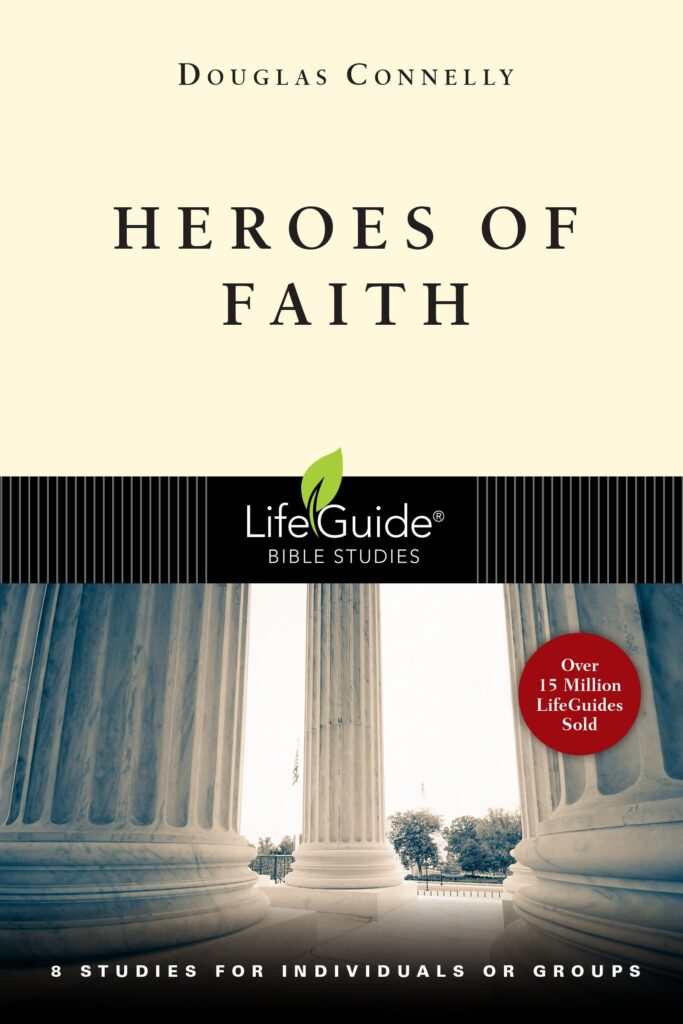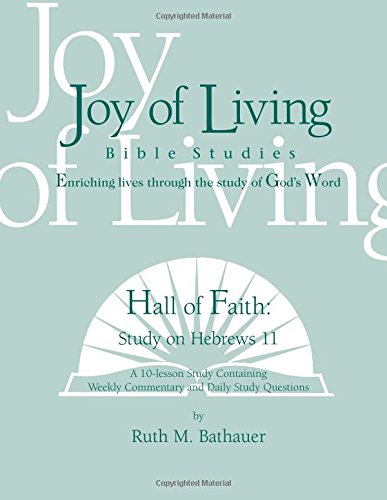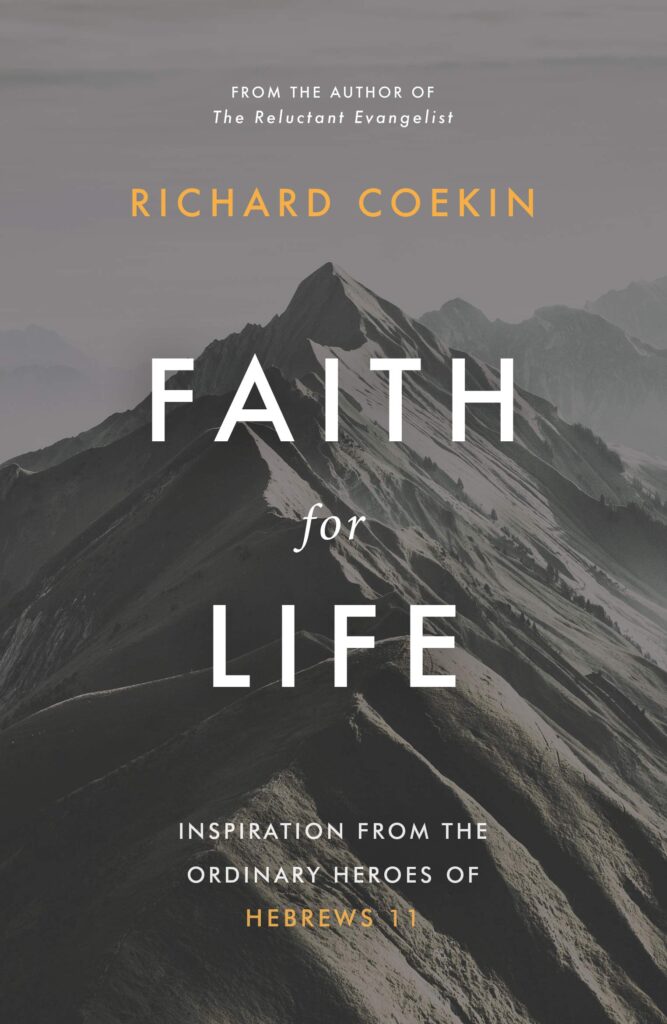Click here to return to Blog Post Intro
Heroes of Faith by Douglas Connelly

Isaac lived in the shadow of his famous father, Abraham. His birth was the beginning of the fulfillment of God’s promises to Abraham, but Isaac seems to fade into the background in the presence of his faith-filled father.
Unlikely Heroes: Ordinary People with Extraordinary Faith by Daniel Lockwood

Isaac’s greatest accomplishment seems to be that he was Abraham’s son. Beyond that, Isaac appears unimpressive.
In Isaac, we see a man with a sense of security—a peacefulness. When he makes decisions, his record, like all of ours, is spotted.
Let’s recap the major events of Isaac’s life:
- His birth (Genesis 21) is supernaturally predicted on several occasions.
- The story of Isaac’s sacrifice (Genesis 22) focuses less on Isaac than on Abraham’s faith, although Isaac’s submission to his father must not be missed.
- When Sarah passes away (Genesis 23), Isaac mourns his mother’s death until he marries Rebekah some four years later.
- Isaac’s union with Rebekah is an arranged marriage (Genesis 24), as Abraham sends his trusted servant to find a wife for Isaac.
- At the age of 60, Isaac fathers twin sons Esau and Jacob (Genesis 25).
- When he is well past 100—likely anticipating his death with dimming eyesight—Isaac decides to bestow his patriarchal blessing on his twin sons (Genesis 27).
- Isaac dies at the age of 180 (Genesis 35).
Isaac was likely considered a spoiled rich kid, who was successful only because he enjoyed the favor, protection, and finances of his wealthy father.
There are six defining events from Isaac’s life that give us some important principles:
- The Famine (Genesis 26:1-6): Trust God in the face of adversity even when your instinct is to flee. When God says, “Stay in the land,” do it.
- The Wife Crisis (Genesis 26:7-11): Protect those under your care even when your instinct is for self-protection.
- Growing Prosperity (Genesis 26:12-16): Handle wealth wisely and graciously, because it comes from the generous hand of God.
- The Water-Rights Feud (Genesis 26:17-22): Diffuse hostilities when your natural instinct may be to ignite them. Follow Paul’s advice, “So far as it depends on you, live peaceably with all” (Romans 12:18).
- The Renewed Covenant (Genesis 26:23-25) & The Abimelech Agreement (Genesis 26:26-35): Trust the promises of God more than the promises of men.
Isaac’s Legacy
Remember three principles from the life of Isaac:
- The life of faith is strengthened by a strong family heritage. Pass it on.
- The life of faith requires making some tough moral choices. Do so informed by the promises of God and infused with the grace and wisdom and God.
- The life of faith recognizes that God’s promises extend beyond the grave. Keep your hope alive.
Joy of Living Bible Studies – Hall of Faith: Study on Hebrews 11 by Ruth M. Bathauer

From an early age, Isaac no doubt learned that God had called his father, Abraham, from Ur. Like many sons, Isaac likely heard his father tell about bygone days as Abraham reminded him of God’s promises and His covenant concerning a land for their people (Genesis 24:7). From his father, young Isaac learned that he was involved in the very core of God’s covenant (Genesis 17:19).
When Isaac was old and almost blind, he realized his time on earth was limited. As God’s chosen heir of the promise given to Abraham, Isaac was to pass on the promise to his offspring.
Through a series of double-dealing treacheries, masterminded by Isaac’s wife Rebekah, Jacob appeared before his father disguised as Esau and received the blessing of the firstborn. When Esau returned from hunting, Isaac realized he had been deceived into blessing Jacob instead of Esau. Despite being very upset, Isaac did not dare to revoke the blessing he had given to Jacob.
Isaac realized that God’s plans cannot be thwarted when he proclaimed, “And indeed he will be blessed.”
“By faith” says Hebrews, Isaac blessed the man of God’s choice.
God’s Hall of Faith Speaks Today (Hebrews 11) by J. David Eshleman

The Second Most Important Decision
Who you choose for a marriage partner is the second most important decision in your life—next to the decision to invite Christ to control your life.
Before Abraham died, he wanted to be sure his son, Isaac, did not marry a local Canaanite woman but a woman from God’s chosen people, a follower of Jehovah (Genesis 24). Abraham sent his servant, a distance of several hundred miles, to find a wife for Isaac. Abraham promised his servant an angel would go with him to find a wife.
Abraham was confident God would see to it that his servant’s mission would be successful. Abraham’s servant ultimately found Abraham’s great niece, Rebecca, who agreed to return to Abraham and be wed to Isaac. Isaac was forty when he married Rebecca.
Isaac pleaded with the Lord to grant them children, and she had twins: Esau and Jacob.
Partiality Brings Suffering
Isaac, who had a taste for wild game, loved Esau, but Rebecca loved Jacob. Favoritism on the part of the parents always leads to jealousy, resentment, and causes serious friction. The consequences are often carried from one generation to the next. Paul’s instruction to Timothy is still needed today. “Do not show partiality” (1 Timothy 5:21).
Overcoming Evil with Good
The Philistines were jealous of Isaac because he became wealthy. They stopped up the wells that Abraham’s servants had dug—a clear sign of war and message of “you are not wanted here. This is our land.”
Isaac moved to the valley of Gerar (Genesis 26:17). He cleared out the wells the Philistines had stopped up. His servants dug another well, but the local shepherds claimed the water. Isaac’s servants dug another well with the same results. Finally, they dug yet another well and named it “Rehoboth” meaning the Lord has made room for us. We will be fruitful. Isaac conquered evil by doing good.

Faith for Life: Inspiration from the Ordinary Heroes of Hebrews 11 by Richard Coekin

Isaac knew that God would one day keep his promise to bring his descendants into the promised land.
In Genesis 27, Isaac begins by praying the blessing over his son (whom he thought was Isaac but was actually Jacob): “May God give you heaven’s dew and earth’s richness—an abundance of grain and new wine”.
Then, Isaac prays in accordance with God’s promise, “May nations serve you and peoples bow down to you… May those who curse you be cursed and those who bless you be blessed.” Isaac prayed, in accordance with God’s word, for his son to be part of God’s future kingdom.
Isaac reminds us that however sinful and foolish we’ve been in our lives, it’s never too late to be a blessing to our children and grandchildren in praying gospel prayers for them—not only for their prosperity and happiness but for them to believe and proclaim the gospel as citizens of God’s heavenly kingdom.
